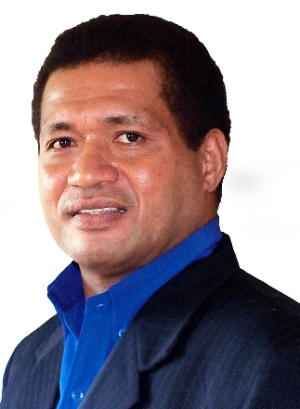 A major project to address legislative, regulatory, capacity requirements and environmental issues pertaining to deep sea mineral mining for countries in the Pacific region will be launched at a three-day workshop from June 6 through June 8 in Nadi.
A major project to address legislative, regulatory, capacity requirements and environmental issues pertaining to deep sea mineral mining for countries in the Pacific region will be launched at a three-day workshop from June 6 through June 8 in Nadi.
The Deep Sea Minerals Project, administered by SOPAC, a division of SPC, and funded by EU, is to develop a legislative and regulatory framework for deep-sea mineral mining over a four-year period.
“This will help ensure that sustainable resource management would bring tangible benefits to Pacific Island Countries and their people”, said Akuila Tawake, Deep Sea Minerals Project Team Leader.
The workshop, a part of the Project, reflects the growing interest in the region with the first commercial mining lease being granted in Papua New Guinea territorial waters to mine ‘high grade’ Seafloor Massive Sulphide (SMS) deposits.
SMS deposits include copper, gold, silver, zinc and lead. This, in turn has triggered growing interest in mining deep-sea minerals in the Pacific Region. In addition to SMS, the seabed of the region is abundant in manganese nodules and cobalt rich crusts.
Presently, about eight countries in the region have granted and/or are at various stages of granting exploration licenses but specific policy, legislation and regulations necessary for the control of deep-sea mineral resources are lacking.
“The purpose of the workshop is to help representatives of those countries participating in the Project to better understand issues related to seabed minerals and mining,” said Mr. Tawake.
“In addition,” he said, “this workshop would allow stakeholders, including representatives of participating countries, to discuss all aspects of the project and work towards an agreement on a way forward for the next four years. “
Fifteen of the world’s top technical, policy and environmental experts on issues relating to deep sea minerals will take part in the workshop.
“These are world renowned experts who are specialists in their own fields of studies and interests. We are fortunate to secure their services for the regional workshop,” said Mr Tawake.
He said that they are expected to provide the necessary advice and guidance during the workshop.
The workshop will be followed by a two-day steering committee meeting of these selected experts on June 9 and 10 on an assessment of regional marine mineral resources. The assessment will be based on past scientific studies and exploration.
“This meeting is part of the SPC and the Norway based UNEP/GRID-Arendal, (the United Nations Environment Programme information office) partnership,” said Mr Tawake. It is expected that the outcomes from this assessment will take one year to complete.”
Countries that are participating in the Project are the Cook Islands, Federated States of Micronesia, Fiji, Kiribati, Marshall Islands, Nauru, Niue, Palau, Papua New Guinea, Samoa, Solomon Islands, Timor Leste, Tonga, Tuvalu and Vanuatu.
Photo caption: Akuila Tawale. Deep Sea Mineral Project Team Leader





